
Мария Дубовикова
Мария Дубовикова - Президент и основатель IMESClub
China’s new role in Syria
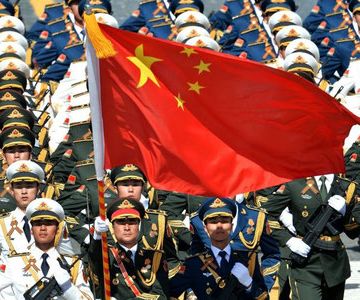 What is China’s incentive for a greater involvement in Syria? The new Chinese involvement in Syria would lead to a further competition between the Washington and Beijing. China will deploy troops in Syria as Beijing is very concerned about the amounting number of militants of Chinese-origin (the Turkmenistan’s or the so-called Uighur) that have joined Daesh in both Syria and Iraq though China does not interfere in any country unless it has economic benefits. The Chinese Ministry of Defence is considering to send two units known as the "Tigers of Siberia" and the "Night Tigers" from the Special Operations Forces to fight terrorist factions in Eastern Ghouta (Suburbs of Damascus) as some of these fighters hold the Chinese nationality and they would pose a high risk on China once they return. Chinese Special Forces will soon head to Syria to participate in countering terrorism of the “Islamic East Turkestan Movement” from Xinjiang in the Damascus countryside.
What is China’s incentive for a greater involvement in Syria? The new Chinese involvement in Syria would lead to a further competition between the Washington and Beijing. China will deploy troops in Syria as Beijing is very concerned about the amounting number of militants of Chinese-origin (the Turkmenistan’s or the so-called Uighur) that have joined Daesh in both Syria and Iraq though China does not interfere in any country unless it has economic benefits. The Chinese Ministry of Defence is considering to send two units known as the "Tigers of Siberia" and the "Night Tigers" from the Special Operations Forces to fight terrorist factions in Eastern Ghouta (Suburbs of Damascus) as some of these fighters hold the Chinese nationality and they would pose a high risk on China once they return. Chinese Special Forces will soon head to Syria to participate in countering terrorism of the “Islamic East Turkestan Movement” from Xinjiang in the Damascus countryside.
An estimated 5,000 Chinese militants are fighting alongside various insurgency groups in Syria. China's involvement in military operations against Daesh is due to Chinese own interests in Syria economically and politically as well in spite of the country’s doctrine of defense sufficiency not to intervene in other’s affairs. Their role in Syria has many facets including sending Special Forces to act against those Chinese Muslims who fight in Syria and because Beijing is afraid of these fighters to get back to China with their extremist, terrorist and Jihadist ideology. Moreover, China has invested tens of billions of dollars in Syrian infrastructure.
China does not want Syria to become a haven or a hub for Uighurs to launch terrorist attacks against Chinese citizens and interests overseas. Driven by the August 30, 2017 bombing of the Chinese embassy in Krgyzstan, which was planned by “Islamic East Turkestan Movement” in Syria and financed by Al Nusra, was an justification for the Chinese to be in Syria as the movement’s acts will not stop at this point but would rather be aggravating due to the end of the Syrian conflict. For some analysts, the involvement of the Chinese and the Russians in Syria is Similar to that of the intervention of the Americans in Afghanistan in 2001 to deny al-Qaeda a base to launch attacks against any US targets.
Though the Chinese statistics show that there are 5,000 ethnic Uighurs from China fighting among Daesh and other terrorist groups in Syria, the Chinese army has taken this decision quite late which reflects that the main objective for getting involved in the military acts against extremists and terrorists in Syria is economic.
China which seeks to obtain economic benefit from the Syrian crisis has received earlier a number of the Syrian government representatives who asked for further Chinese economic support for Syria which resulted in the announcement of more than US$6 billion in direct investments.
After the demise of Daesh in Syria, Beijing will be investing in Syria heavily to take over oil and other resources. However, politically, China will endeavour to coordinate actions with all parties concerned in the Syrian issue including Russia and the USA.
Last week, there were Chinese-Syrian talks in Damascus where Al-Assad's advisor Buthaina Sha'aban on November 23 held talks with Chinese Foreign Minister Wang Yi on countering terrorists from the "East Turkistan Islamic Movement" in Eastern Ghouta region after being spotted in the countryside of Damascus.
Since the "East Turkistan Islamic Movement" group has committed more than 200 terrorist acts in China in the last few year, China is looking for finishing them off in Syria before they get back to China where they would act against the government in a bid to stir revolution that may endanger China’s economic development and progress.
China is reliant on on Central Asia and Mideast energy sources, and volatility in these countries; thus any control by Salafist regimes affiliated to Uighur intimidates China’s power supply and the so-called “Eurasian One Belt One Road”( (OBOR) project which connects more than 60 countries with the Chinese Xinjiang functioning as bridgehead China’s trade strategy.
Xinjiang, which is located in Northwest of China, is restless and susceptible to violence and anarchy. The Chinese government, blames disorder on radicalism and violent separatist movements, such as the East Turkistan Islamic Movement where more than 10,000 armed Chinese police marched through Urumqi, the capital of Xinjiang, last February in a show of force.
Sources are quite sure that Chinese military advisors are already in Syria, paving the way for the troops to act as combat drones have been shipped from China to Syria’s Humaimeem Airbase in Lattakia, North West of Syria, to be used to counter-terror capabilities. The Chinese will send more troops if the Americans send other military forces to Syria; in other words, China’s involvement hinges on American conduct because China will not allow the US to corner the arm of Beijing by harboring Chinese terrorists for future acts against Chinese interests in Syria, or elsewhere. The coming few weeks will witness many meetings between Chinese and American military and security officials due to the involvement of the Chinese forces in Syria. Though the Chinese involvement is to safeguard their power energy to ensure their trade superiority worldwide, the Americans would not allow the Chinese to win in the Syrian conflict against the Chinese fighters for future considerations because China has become a global actor in various fields including trade and military, depending on energy from the Middle East region. Once China is in Syria, this means it will have more active role in the Mideast and in Central Eurasia, affecting American strategic interests.
Shortened version is published by Arab News
Daesh defeated, but what comes next?
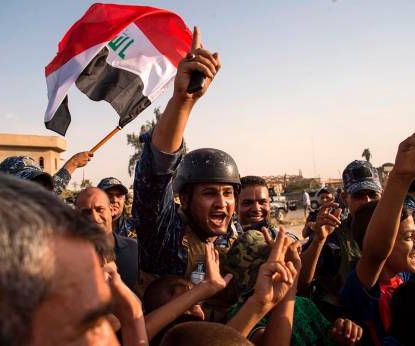 After the demise of Daesh in Syria and Iraq, the question on everyone’s mind is: What comes afterward?
After the demise of Daesh in Syria and Iraq, the question on everyone’s mind is: What comes afterward?
History has proved that defeating the symbols of terrorism has little impact on the phenomenon of terrorism itself, or its ideology — the international community, after all, heralded the defeat of terrorism after the killing of Osama bin Laden.
What happened in Syria and Iraq should be a wake-up call for everyone. The answer to the terrorist threat must be global. Battling against the influence of extremists is part of the nightmare that Muslim populations — tormented by anguish and uncertainty — are suffering daily, with many killings everywhere. The war on terrorism will not end with the defeat of terrorist factions; the many-headed hydra of terrorism will breed more of them from those who are marginalized in their communities, those who are unemployed, and those who have their own, more personal, reasons for becoming terrorists.
Daesh is on the brink of collapse on all military fronts; its cells are likely to continue with bombings and assassinations, but the terror group is no longer able to occupy land or open new fronts.
But after all the blood, displacement and destruction in Syria and Iraq, how will things look on various levels when Daesh is finished?
Perhaps all the bloodshed can lead to a serious reasoned response.
Since the 1960s, decision-makers have not placed terrorism at the top of their priority list. There are various reasons for this: Arms sales are one of them. Terrorism is not perpetrated only by those who have their hands stained with blood. Terrorism starts with dialogue and discourse, notions and concepts; then it expands into a sense of hatred, rejection and exclusion of others before turning into murder. The more extremist the education is, the more bloodshed humanity will witness.
The world must eradicate the circumstances that gave rise to the incubation of extremist ideologies and must neutralize the role of deviant clerics. The role of fighters may end when the fighting does, but the role of artists, intellectuals, the media and civil society can formulate new concepts and breathe life into them without directly interfering with social customs and traditions.
Many of its fighters have fled to many different countries, carrying with them Daesh’s ideology, and waiting for the chance to try again.
Maria Dubovikova
For example, many of the countries most-ravaged by terrorism lack any theatrical movement — the kind of thing that can, through satire and comedy, mix education with entertainment.
These countries should also initiate employment programs and plans to rescue the poorest families from their tragic realities. And perhaps the most important step that must be taken by these countries is to create new education programs for children based on a new vision. They also need to provide young people with sports and social clubs, instead of relying solely on mosques as a gathering place for youth. Of course, mosques and religion can play an important role in the transmission of morals and ideals, but those who would use religion to disseminate hatred and sectarianism must no longer be allowed to do so. Indeed, sectarianism should be officially criminalized through the UN.
One of the major obstacles to defeating terrorism is the rehabilitation of those who have been radicalized. Once they are trapped in the web of terrorism and extremism, it can be very hard for them to extricate themselves from it. A road map must be prepared to accommodate them and lead them back to normality.
Daesh has come to an end as a state; its dreams of a caliphate destroyed. But many of its fighters have fled to many different countries, carrying with them Daesh’s ideology, and waiting for the chance to try again.
After all that Daesh and other terrorist groups have done, and after all the condemnation of their bloody actions, can we now hope that terrorism will not return with other groups under other names? Or is that something we can no longer aspire to?
Article published in Arab News: http://www.arabnews.com/node/1200191/columns
Photo credit: AFP
Why Syria’s road to peace may run through Sochi
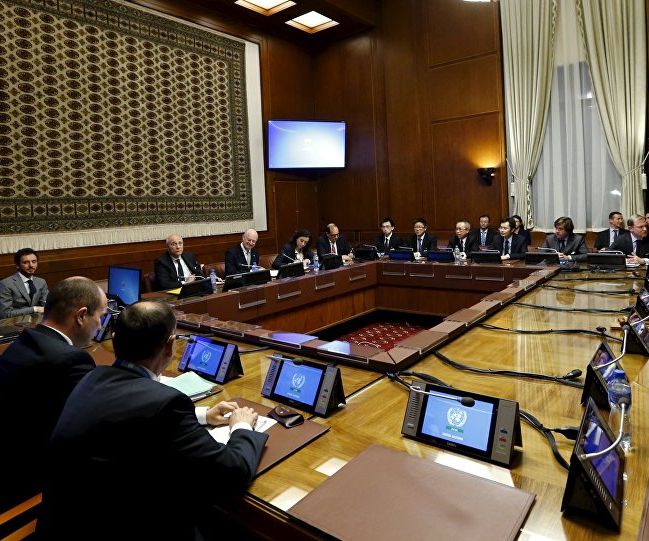 The leaders of Iran, Turkey and Russia, the guarantor countries trying to broker peace in Syria, will meet just before the new round of Geneva talks. The timing is significant, as Syria is again boiling over, developments on the outskirts of Damascus are making matters worse and rebel groups are threatening the ceasefires reached in the de-escalation zones in four areas of Syria.
The leaders of Iran, Turkey and Russia, the guarantor countries trying to broker peace in Syria, will meet just before the new round of Geneva talks. The timing is significant, as Syria is again boiling over, developments on the outskirts of Damascus are making matters worse and rebel groups are threatening the ceasefires reached in the de-escalation zones in four areas of Syria.
At the beginning of the month, after Astana talks that were attended for the first time by Saudi representatives, the Russian President Vladimir Putin visited Tehran to meet Iranian and Azerbaijani leaders, with the Syrian issue on the table. The Syrian opposition will meet in Riyadh on Nov. 22 as Saudi Arabia tries to unify them under one umbrella. At the same time, Russia, Iran and Turkey will discuss the peace process, apparently choosing a strategy for different scenarios depending on the success or failure of the Geneva talks, and will discuss the possible outcomes of the Syrian National Dialogue Conference next month organized by the Russian Ministry of Defense. Some perceive this conference as an attempt to foil the UN Geneva talks, but that is what they once said about Astana — which was, and remains, an instrument for making Geneva more effective. The conference is intended to launch an indispensable reconciliation dialogue to proceed in tandem with political dialogue and the post-war political process.
The meeting of Turkish, Russian and Iranian presidents on Nov. 22 in Sochi will touch upon the latest developments in Syria and the Middle East. It is particularly important taking into account tensions with the US. Ankara has threatened possible attacks on US-backed Kurdish forces in Syria. Turkey’s ties with NATO are becoming more hostile than ever.
Washington is trying to revise the Iran nuclear deal and restore sanctions against Tehran, so Iran is openly inviting Moscow to form a coalition to counter the US. Iran’s activities in the region are anathema to the Gulf states, the US and Israel, while Moscow, Ankara and the Assad regime view its participation as vital.
The summit in Sochi has to be seen in the context of the Dialogue Congress 10 days later; timing that suggests Putin wants to draw united positions from Recep Tayyip Erdogan and Hassan Rouhani to declare the end of the war in Syria.
The three countries’ coordination on Syria has increased since 2016, although Ankara’s position on the Assad regime differs from Moscow’s. Putin and Erdogan discussed the Syrian crisis in Sochi on Nov. 13, when they announced that relations between them were fully restored. Later, Ankara announced the purchase of Russia’s sophisticated S400 missile defense system.
There is a clear mutual understanding about a political solution in Syria, and on other related issues, but Russia and Turkey appear to prefer to keep the details secret. Nevertheless, there is no doubt that during the talks the parties will discuss the possibility of the expansion of de-escalation zones in Syria, which is indispensable for peace.
Some years ago, the West and regional allies were insisting that Bashar Assad should go and the political process had to start before Daesh could be destroyed. Now it is clear that any political process goes hand in hand with national reconciliation and the launch of post-war restoration, without necessarily clearing Syria of every terrorist cluster.
Moscow, which has changed the course of the Syrian conflict since it intervened militarily in September 2015, has given a series of signals that it is continuing to craft a political solution. The agenda of the Sochi Dialogue Conference is the political future of Syria after transformations in which the opposition lost large parts of its control, and Daesh is on the verge of defeat. A Syrian national unity government may be proposed, but the most important topics are the constitutional reforms and parliamentary and presidential elections.
As for the Syrians themselves, they have little hope that the conflict will be settled any time soon. Some fighting groups have transformed into criminal gangs sucking blood and money from the miserable people living in territory they control, and profiting from the continuing war — which explains why they are trying to break the ceasefires. The international community, notably the West, is ignoring many issues, playing with facts to serve their own agendas and hiding behind noble statements. There is pessimism, but also a clear understanding that most of the foreign players are not interested in conflict resolution. Kicking the “annoying players” — Russia, Turkey and Iran — out of Syria would clearly serve their national interests, but not the peace settlement goals. However, there is still hope that the next Geneva talks will be more successful than the previous rounds and give hope for other initiatives to be successful as well. Syria needs peace.
Article published in Arab News: http://www.arabnews.com/node/1196166
Photo credit: www.facebook.com/SyrianNationalCoalition / Facebook
How the Middle East could go the way of the Balkans
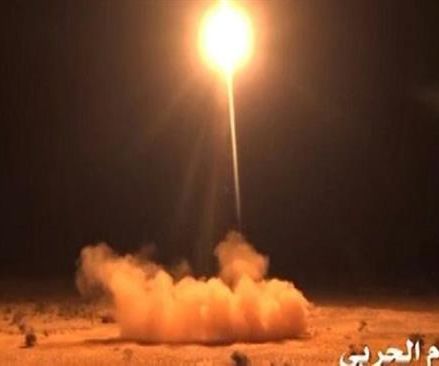 The current status of the Middle East is similar to that of the Balkans in the years before the World War I. Are we going to witness a Balkanization of the region — geopolitical fragmentation caused by other countries’ foreign policies? And what are the chances of an Iranian-Arab war or a Shiite-Sunni conflict that could lead to the redrawing of the Middle East map?
The current status of the Middle East is similar to that of the Balkans in the years before the World War I. Are we going to witness a Balkanization of the region — geopolitical fragmentation caused by other countries’ foreign policies? And what are the chances of an Iranian-Arab war or a Shiite-Sunni conflict that could lead to the redrawing of the Middle East map?
Saudi Crown Prince Mohammed bin Salman said a ballistic missile fired at Riyadh this month from Houthi militia-held territory in Yemen was supplied by Iran, and described it as “direct military aggression” and an “act of war.” The accusation was repeated by the Lebanese Prime Minister Saad Hariri in his resignation statement: “Iran controls the region and the decision-making in both Syria and Iraq. I want to tell Iran and its followers that it will lose in its interventions in the internal affairs of Arab countries.” He specifically blamed Iran for interference in the affairs of Lebanon.
Saudi rhetoric aimed at Iran has escalated in the past few weeks, and Foreign Minister Adel Al-Jubeir accused Tehran of being behind all evil acts in the region. “The Iranian terror continues to terrorize the innocent, kill children and violate international law, and every day it is clear that the Houthi militias are a terrorist tool to destroy Yemen,” he said. “The Kingdom reserves the right to respond to Iran at the right place and time.” Last week Saudi Arabia called on the UN to take measures against Iran to hold Tehran accountable for its conduct.
Events are moving fast. They could lead to a military confrontation, including the intensification of proxy wars, and a deepening of the Shiite-Sunni divide. The danger persists as long as the two superpowers, Russia and the US, stand on opposing sides of the spectrum on many regional issues, especially Iran. Recent comments from the Oval Office make it clear that the latest events have full US approval and conform with its expectations and policies.
The Iranian ballistic missile program is a key factor in Arab strategies and alliances. Many countries in the Middle East started heading east and west to purchase air defense missiles, such as the Russian S-300 and S-400 and the American Patriot and THAAD systems. Arab countries also started to think of producing their own military equipment by having offset projects with weapons manufacturers in China, Russia, Ukraine, South Africa, France, the UK, Germany, Brazil and the former Yugoslavia.
Saudi Arabia is also concerned about the influence of Iran in Lebanon through its proxy, Hezbollah, even more so since Riyadh believes Hezbollah operatives fired the most recent missile launched at the Kingdom from Yemen. “The Lebanese must all know these risks and work to fix matters before they reach the point of no return,” said the Saudi Minister for Arab Gulf Affairs Thamer Al-Sabhan.
Russia is keeping a close eye on the growing threat of military action against Iran — not a direct conflict, which is unlikely, but an extension of existing proxy wars.
Maria Dubovikova
This war of words may lead to a military clash in the Gulf or in Lebanon, further escalation in Yemen, Iraq and Syria, where Iran has a strong presence, and further proxy wars, unless the Americans take direct action against Iranian troops in Syria and Iraq. And that would lead to a dramatic escalation of tensions between regional and international powers already competing for influence in the Middle East.
Iran is a direct threat to the stability of the region, and US President Donald Trump has listed it as a major global threat. Tehran’s growing influence in Iraq, Syria, Lebanon, as well its activities in support of Houthi rebels in Yemen, pose a threat to the interests of the Arab world.
Action may be taken, including the military option, against the Iranian presence in the Levant. Escalation in Lebanon, the worst-case scenario, may result in a military conflict that would explode the region and drastically affect global stability because the players involved are so numerous and the stakes so high.
Nevertheless, the concerned sides understand that direct conflict would be a zero-sum game, and has to be avoided. The way to do so is by conducting proxy wars, but the cost of such wars on global stability and human life would also, inevitably, be too high.
Russia closely follows developments in the region because it has become directly involved. For Moscow, regional processes are critical. Historically, stability in Russia depends a lot on the climate in the region, and the Middle East is again one of its national interests. It has succeeded in building normal ties with all the players in the region, even those that are rivals with one other. Having good ties with Iran and Saudi Arabia, Russia has been proposing itself as a potential mediator in the conflict between Riyadh and Tehran, although the offer has not yet been taken up. Russia is worried about the possibility of escalation of already existing proxy wars and the emergence of new ones, especially in Lebanon.
In commenting on the dispute between Iran and Saudi Arabia, Russia has used diplomatic rhetoric, calculating all the possible risks and scenarios. A war in Lebanon would mean a drastic deterioration in regional stability, especially in Syria. The region needs stability, and political and diplomatic solutions for its disputes.
Article published in Arab News: http://www.arabnews.com/node/1194021
Photo credit: Mersad
Prospects for the upcoming Astana talks on Syria
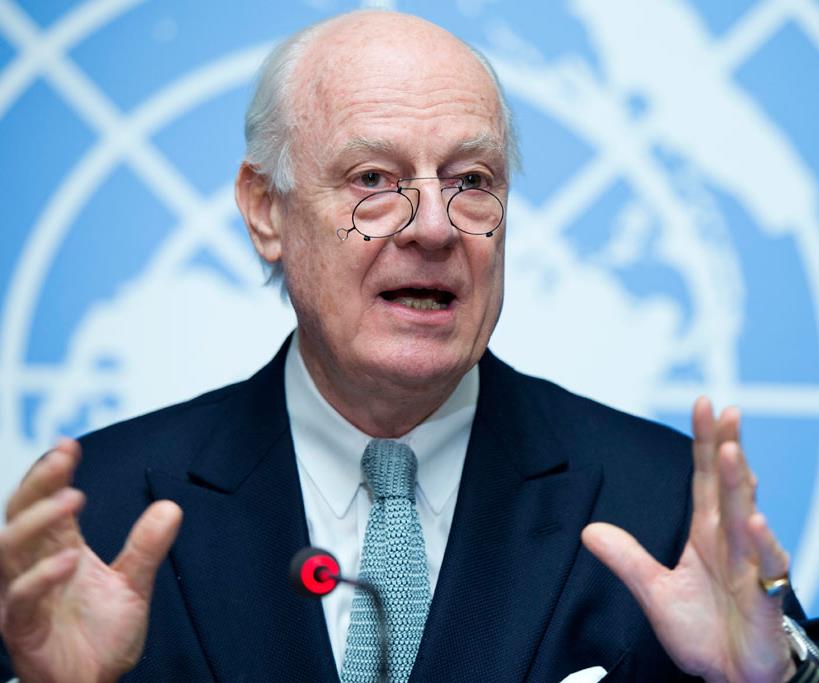 The agenda for the next round of Syria talks in the Kazakh capital Astana was determined in an Aug. 7 meeting in Tehran of the three guarantor countries — Turkey, Iran and Russia — amid expectations that the Astana conference will be held in the last week of August. What is expected from this meeting between the Syrian government and opposition representatives?
The agenda for the next round of Syria talks in the Kazakh capital Astana was determined in an Aug. 7 meeting in Tehran of the three guarantor countries — Turkey, Iran and Russia — amid expectations that the Astana conference will be held in the last week of August. What is expected from this meeting between the Syrian government and opposition representatives?
The answers lie in the two de-escalation zones that have been effective so far. The first was announced in early July in the southwest, covering Daraa, Suwaida and Qunaitra. The second was announced on Aug. 2, covering northern Homs, including Al-Waer neighborhood. The expectation is that there will be a push for de-escalation zones in other parts of Syria.
Negotiators will also discuss a proposal shared by UN envoy Staffan de Mistura. It contains the “four baskets” of transitional governance, a constitutional process, elections and counterterrorism. The conference will discuss which topic to handle first; the Syrian government insists on counterterrorism.
The outcome will have a long-term impact on regional stability, particularly in neighboring Jordan, Turkey and Lebanon, which host the largest numbers of Syrian refugees. The meeting could help stop the spill-over from Syria into these countries, provided that Russia and the US continue to cooperate to expand de-escalation zones. The Astana meeting will also call on all countries not to interfere in Syrian internal affairs and focus on how to rebuild the country.
Previous Astana meetings have successfully bridged some gaps between the Syrian government and the opposition. Let us hope that the upcoming one will do the same.
Despite the failure of previous Geneva talks to stop fighting in various parts of Syria, the government and opposition have agreed 15 evacuation deals that have allowed opposition fighters to safely leave besieged cities and towns for Idlib.
A cease-fire in three southwestern governorates was announced on July 10 shortly after long meetings between Russians and Americans in Jordan, which helped bridge the gap between them. Under the deal, Russian officers are monitoring the cease-fire.
To many analysts, things are moving faster than expected in Syria due to coordination between both superpowers, and a belief among the government and opposition that there has been more than enough fighting. Both parties acknowledge that now is the time to stop the war and open a new page for all Syrians to rebuild their country.
Some opposition leaders have started echoing the government in saying a solution cannot be imposed on Syrians by other countries, particularly since the US said it will no longer push for Bashar Assad to be removed from power. Previous Astana meetings have successfully bridged some gaps between the Syrian government and the opposition. Let us hope that the upcoming one will do the same.
Article published in Arab News: http://www.arabnews.com/node/1142776/columns
Photo credit: UN Photo/Jean-Marc Ferré
G20 comes with a breakthrough on Syria
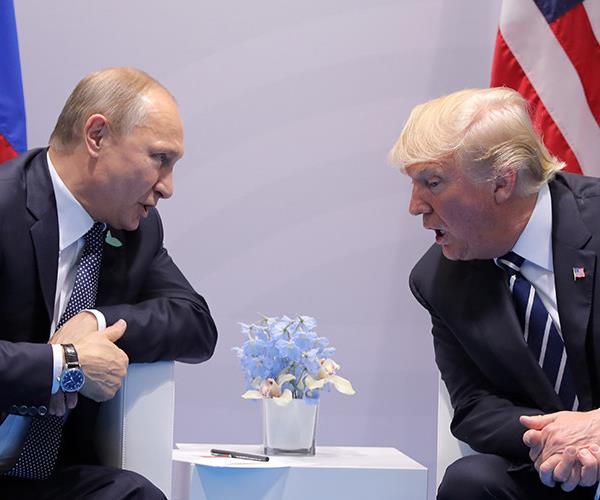 G20 Summit was much awaited globally, and mostly not because of its format and discussions, but because of the top level bilateral meetings regularly held on its sidelines. The most intriguing talks were the first meeting between Donald Trump and Vladimir Putin, that lasted over two hours, giving impression that the two leaders enjoy company of each other. However, agreements or significant declarations were not expected, while some breakthrough has been achieved. And the achievement doesn’t concern Russia-US bilateral ties, that remain at their low, but Syria issue, as countries seem to have finally found the common ground on the Syria matter.
G20 Summit was much awaited globally, and mostly not because of its format and discussions, but because of the top level bilateral meetings regularly held on its sidelines. The most intriguing talks were the first meeting between Donald Trump and Vladimir Putin, that lasted over two hours, giving impression that the two leaders enjoy company of each other. However, agreements or significant declarations were not expected, while some breakthrough has been achieved. And the achievement doesn’t concern Russia-US bilateral ties, that remain at their low, but Syria issue, as countries seem to have finally found the common ground on the Syria matter.
Both the US and Russian leaders claim the political victory after brokering a ceasefire in Syria for the first time since the breakout of the Syrian conflict. The unprecedented deal was not expected even by those who were optimistic regarding finding a solution to the Syrian conflict.
US President Donald Trump and his counterpart Vladimir Putin have agreed to a ceasefire in Southwest Syria starting from midday of Sunday, July 9, 2017, a day that follows their meeting at the G20 Summit in Hamburg, Germany.
A statement by Russian ministry of foreign affairs reveals that talks were held in Jordan one month ago, in June, aimed to reach the deal on the “de-escalation region” in southern Syria.
A memorandum of understanding to establish a de-escalation zone in the regions of Dara’a, Quneitra and Suweida was agreed upon Saturday July 8, 2017 between Russian, American and Jordanian military and security experts.
Russian Foreign Minister Sergei Lavrov who confirmed the news said that the deal will be effective as of midday Damascus time on July 9 which stipulates that a ceasefire will be in effect.
The deal provides that Russian troops will be deployed near the Jordanian-Syrian borders to replace the Iranian forces as Jordan has conservation regarding any militias or sectarian forces near its borders. This deployment is in interest of all the players, as it minimizes the dubious and undesirable Iranian presence in strategically important areas in Syria that threatens the Syrian conflict settlement and deteriorates regional stability and climate.
The Hamburg face-to-face meeting between both leaders allowed to discuss in details the agreement which also includes areas that have seen recent clashes between Syrian army forces on one hand and Israeli and rebel fighters in the Golan Heights on the other.
After Hamburg, what is Syria about? Is Washington still focusing on overthrowing the Syrian president Bashar Al Assad? Why did Putin stress that the shift in the American stand would help reach a final deal and settlement to the Syrian conflict peacefully? The answers would come simply from the trips made by some Jordanian officials to Moscow and Washington in addition to Syrian-Jordanian meetings at high security levels in the past few months which helped to culminate the deal, crowned by inking the agreement in Amman to help regain peace to the war-torn Syria.
Regardless of the Astana talks and the outcome of the negotiations between the representatives of the Syrian government and the opposition, the aspirations of the Syrians would come true if this deal gets into effect with sincerity from all concerned parties whether regional or international as any spillover of the Syrian crisis would this time be a deluge, affecting the whole Middle East, igniting further sectarian wars that would spread like fire in the bush.
This year Russia has been involved in talks with Turkey and Iran over the creating of 4 de-escalation zones in Syria to be policed by two surveillance centers: one in Jordan and the other in Turkey.
Though the monitoring process will be conducted mainly by Russian military police in coordination with Jordanian and American officers, the situation on the ground will be decided by the deployment of heavy artillery and troops. This justifies why the Syrian army and its allies started an expansive and comprehensive military campaign to regain many strategic positions before ceasefire gets into effect.
The tripartite agreement was also in line of contact agreed upon between the Syrian government forces and associated troops on one side and rebels on the other hand. The three signatory countries voiced their commitment to working on a political solution" based on UN-backed talks in Geneva and UN Security Council Resolution 2254.
Jordan seemed the focal point nowadays to the US administration and the Russian policy makers as the understanding was designed to reduce violence in an area of Syria near Jordan’s border, which is critical to Jordan’s security and Israeli stability. Jordanian King Abdullah II is a frequent guest both in Washington and Moscow these days, negotiating many regional issues with the two superpowers.
A warm welcome and support came directly from the UN on the reached promising agreement between the US and Russia, saying it would enable upcoming peace talks.
Much work lies ahead to ensure that constructive talks would yield to the positive results aspired to perform a sustainable ceasefire over the long term.
In order to avoid any whiplash, Russia, the USA and Jordan, should establish a more comprehensive plan to better control the de-escalation to proceed ahead with the three other de-escalation zones. This will help to avoid any consequential issues in the relationship between the three nations through direct and candid address of their concerns.
The meeting between Putin and Trump has set up a robust and comprehensive framework for future cooperation on Syria and for solving other Middle Eastern issues. Yet, this cannot be achieved without regional cooperation and coordination from the parties concerned, Turkey and Saudi Arabia in particular, as the peace process majorly depends not only on the situation on the ground, but on what is going on at the negotiating table and on the presence of the consent between the negotiating sides. At least on the possibility of its achievement, that mostly depends not only on the will of the sides, but also on the influence projected on them by their regional supporters.
Photo credit: Carlos Barria / Reuters
Astana meeting: 2 monitoring centers and a new Syrian Reconciliation Committee
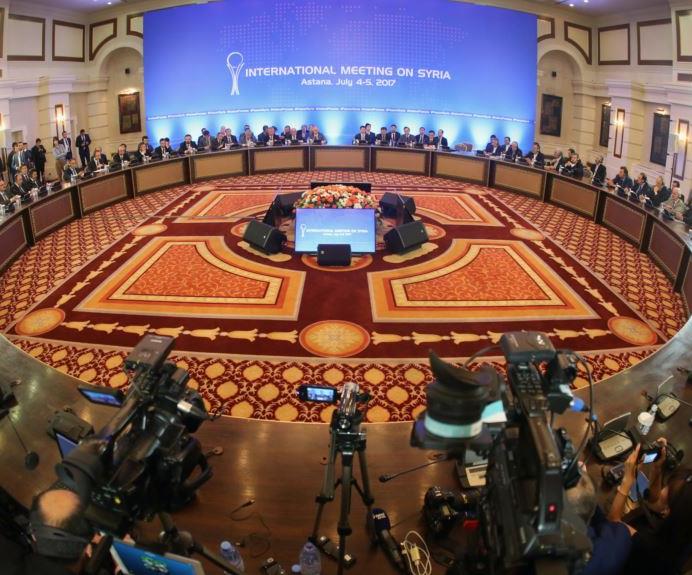 Diplomats from Russia, Iran, Turkey, and the United States have begun a fifth round of Syria peace talks in Astana with the Syrian government and representatives of some Syrian opposition groups to help Syria move to the next phase of defusing tension in all area to restore the country’s peace and stability as the country has been locked in a vicious conflict since early 2011
Diplomats from Russia, Iran, Turkey, and the United States have begun a fifth round of Syria peace talks in Astana with the Syrian government and representatives of some Syrian opposition groups to help Syria move to the next phase of defusing tension in all area to restore the country’s peace and stability as the country has been locked in a vicious conflict since early 2011
In the middle of continued violence in Syria, the 5th round of the Astana talks is set to convene to further discuss the establishment of the four proposed de-escalation zones in Syria in Idlib, Homs, Eastern Ghouta, and Daraa. This Astana meeting was preceded end of June by meeting by talks in Jordan involving U.S., Russian and Jordanian officials discussing a de-escalation zone in southwest Syria on the border with Jordan.
The July discussions will define the boundaries of the de-escalation zones, implement mechanisms by the three guarantor countries—Russia, Turkey and Iran— and will lead to the establishment of a new Syrian National Reconciliation Committee, that would split the other Syrian opposition groups.
The success of this round of talks depends on whether Russia succeeds this time in committing the parties involved in the Syrian conflict on the ground to the cease-fire as without a sustained cease-fire, no pathway to conflict de-escalation in Syria would be seen in the near future.
Sources to the 5th round suggest that monitoring over de-escalation in Syria be conducted from 2 monitoring centers — Jordanian and Russian-Turkish. In other words, the first will be Jordanian-Russia-US due to the meeting held in June between Jordanian, Russian and American security officials in Northern Jordan. This center will be in charge of the southern de-escalation zone. The second center will be in on the Turkish Syrian borders and it will be Russian-Turkish. These two monitoring centers would exchange information and suggest measures to prevent violations, such as military disengagement and any further military escalation on the borders with Jordan and Turkey to avoid any direct clash or skirmishes between the armies of these three countries which would deteriorate the situation to expand to the Israeli front.
As for the final declaration of the meeting, it will entail the formation of the National Reconciliation Committee of representatives of the Syrian authorities and local respected people, elder statesmen and opposition leaders. The commission would focus on all domestic issues, including security. It is expected that the committee would lead to the division of the Syrian opposition outside Syria.
Staffan de Mistura, the United Nations secretary-general's special envoy on Syria, who is taking part in the meetings of Astana, keeps calling on all parties to reach ceasefire and this would be a very good chance to bring peace to the war-torn country.
The meetings of Astana have paved the way for further deployment of Russian military to police the borders of de-escalation zones in Syria within two to three weeks after finalizing a deal with Turkey and Iran.
The details of the deal will be agreed upon by the three countries: Russia, Turkey and Iran in spite of some concerns about Iranian role in this process as voiced by the opposition.
In these talks there will be many Syrian opposition representatives
According to Kazakh Foreign Minister Kairat Abdrakhmanov, there will be nine representatives of Syria's armed opposition at the talks on July 4.
The meeting will be attended by Syrian envoy Bashar al-Jaafari, Iranian Deputy Foreign Minister Hoessein Jaberi Ansari, Turkish Deputy Foreign Minister Sedat Onal, and the acting U.S. assistant secretary of state for the Near East affairs bureau, Stuart Jones.
The fourth meeting in Astana in May was a breakthrough, as the three ceasefire guarantor states signed a memorandum on the establishment of four de-escalation zones in Syria without demarcation of these zones. Monitoring over the de-escalation zones is now the main topic on the agenda of the fifth meeting in the Kazakh capital.
The Astana meeting sounds to put an end to proxy wars in Syria as external military intervention—including arms and military equipment, training, air strikes, and even troops threaten to lengthen the conflict.
The Syrian Army, the Free Syrian Army (FSA), Kurdish armed groups that are part of the Syrian Democratic Forces (SDF), including the People's Protection Unit (YPG), are fighting Daesh and Al Qaeda fighters to control more territory in Syria. The Astana meeting would help define the lines that each of the fighting parties would reach in this conflict before a final political settlement is set inspire of Russian and Iranian support to the Syrian government. The main objective of such conferences including Astana and Geneva are to reach ceasefire and then to avoid any direct confrontation between neighboring countries armies on one hand and the Syrian army and its allies on the other.
The ongoing instability has enabled the expansion of powerful radical elements and extremists to increase their influence and pose hiking threats to countries neighboring Syria: Jordan, Lebanon, Turkey, Iraq and Israel.
The first round of Astana talks were held on January 23-24, 2017 brokered by Turkey, which backs the opposition, and Russia and Iran, which support Bashar al Assad.
Since the beginning of the war in Syria, more than 400,000 have been killed and more than 11 million displaced and fled the country to Jordan and Lebanon as well as Turkey seeking shelter.
Photo credit: AFP
Military action overshadows Syria diplomacy
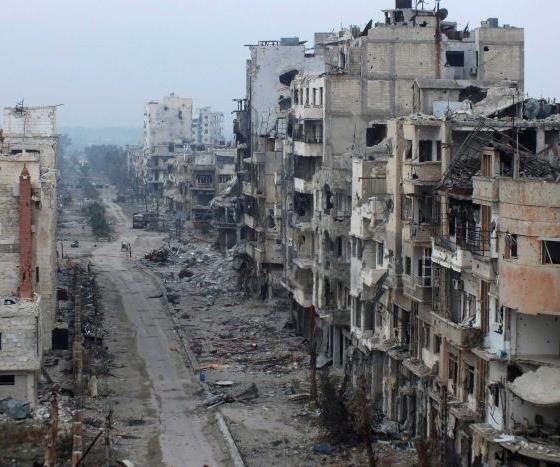 The next round of Syrian peace talks in the Kazakh capital Astana, scheduled for July 10, will coincide with a fresh round of UN-sponsored talks in Geneva. These diplomatic efforts come as the situation on the ground is becoming more tense, with Russia and the US close to direct confrontation in Syria.
The next round of Syrian peace talks in the Kazakh capital Astana, scheduled for July 10, will coincide with a fresh round of UN-sponsored talks in Geneva. These diplomatic efforts come as the situation on the ground is becoming more tense, with Russia and the US close to direct confrontation in Syria.
Russia, Iran and Turkey hope that a deal signed on May 4 to set up four safe zones in Syria will lead to a comprehensive cease-fire. UN envoy Staffan de Mistura has proposed three issues to be discussed in parallel: Constitutional amendments, general and presidential elections, and the type of government. Yet none of the parties concerned are interested in the proposal, and they are continuing military action to gain the upper hand in any future talks.
At the end of April, Russia, Turkey and Iran established a trilateral mechanism to observe and ensure full compliance with the proposed safe zones. As Daesh and Al-Qaeda lose territory in Syria, the government is gaining more, changing the political and military balance on the ground.
Decisive moments in Middle East history lie in the hands of three major powers: The US and its bloc, Russia and its bloc, and Turkey, which has strategic plans in Syria. With speedy efforts to liberate Mosul from Daesh, the main momentum will be in the belt extending from the Jordanian-Syrian-Iraqi borders in the southeast to Raqqa governorate, Daesh’s stronghold.
As the race to take over this area heats up, the outcome will determine the future of any independent Kurdish state there. The recent withdrawal of German forces from southeast Turkey to Jordan indicates that the Western alliance is trying to empty the region to make way for an independent Kurdish state. Ankara is striving to abort this project.
The deployment of Turkish special forces near the border with Syria a few days ago indicates that Ankara has a spat with the West over this region and its future. Meanwhile, Tehran’s recent mid-range missile strike against Daesh sites in Syria is a message that it will not allow any Kurdish state that encompasses part of Iran and thus endangers its national security.
So both Tehran and Ankara have a common enemy in the Kurds, and they will do their utmost to deprive them of an independent state between Iraq and Syria along Turkey’s borders. Meanwhile, the upcoming Astana meeting will discuss the four zones that will be free of armed conflict. This will pave the way for a settlement of the Syrian conflict, which has so far killed 400,000 people and displaced more than half the population.
The major difference between American and Russian efforts against terrorist groups is that Washington does not want to relinquish liberated areas to Damascus. Russia and the US are intensifying their competition in Syria despite their coordination over airspace to avoid clashes or accidents. Russia issued a warning after the recent US downing of a Syrian jet, calling it an aggression and a violation of the deal between Moscow and Washington.
Any development in southern Syria will be monitored by Israel, which will not allow terrorist groups near its border to be replaced by Iranian troops and Hezbollah fighters, as evidenced by its recent attacks against Syrian government forces near the Golan Heights. Military achievements will determine the composition of a future Syrian government.
Article published in Arab News: http://www.arabnews.com/node/1121631
Photo credit: Reuters/ Yazan Homsy
Trump’s tour in the eyes of skeptics and pundits
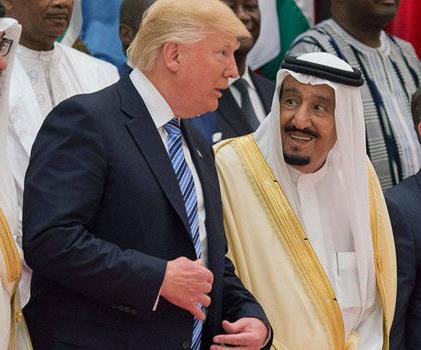 Trump's overseas visit, the first since he has become the 46th US President, is not typical as it started with Saudi Arabia, the first leg of his external tour which takes him also to Israel and with the Vatican as his final destination, defying traditional first state visits that are usually paid to Washington’s old allies. That is one of the reasons why the world is following the visit with a pity dose of skepticism, while the Middle East region is boiling with happiness.
Trump's overseas visit, the first since he has become the 46th US President, is not typical as it started with Saudi Arabia, the first leg of his external tour which takes him also to Israel and with the Vatican as his final destination, defying traditional first state visits that are usually paid to Washington’s old allies. That is one of the reasons why the world is following the visit with a pity dose of skepticism, while the Middle East region is boiling with happiness.
This time the tour is not only a purely geopolitical matter. It is predetermined by a complex pack of geopolitical, political, business reasons and personal beliefs. The Middle East is at the center of the major global turbulences. The Middle East is the cradle of the world’s religions and of civilization. The Middle Eastern countries are important partners in terms of investment and trade, as they have high financial capabilities for investments and trade development while undergoing intensive full scale development in many sectors. With this tour, based on visiting three centers of three main world’s religions, Trump somehow gives a message of coexistence, and of building bridges between the religions and of reconciliation.
The Riyadh Summit has become the starting point not only of his tour, but is deemed a new face-off of regional and world order. The summits may enter the modern history as a cornerstone of the new unprecedented tomorrow.
They were not only about fighting terrorism and extremism, that are fundamental threats for the whole mankind, but about forming new alliances, closing the rows of the Muslim world under the powerful shield of the US. It is about formation of a new system of cooperation and breaking off with the heritage of Obama, considered weak-willed. However, the speech in Riyadh delivered by Trump at some extent reminds of Obama’s one, delivered in 2009 in Cairo University, during his first few months as president, entitled “The New Beginning,” which addressed Muslims from a Muslim capital. That time the White House Press Secretary Robert Gibbs has stated that the choice of Egypt was predetermined by the consideration, that “it is a country that in many ways represents the heart of the Arab World.” Trump has targeted in his speech not only the Arab World, but the whole Muslim community, except Iran, from heartland of Islam.
The Muslim world is at the same time both the source of terrorism and extremism and its main victim. And Trump’s decision to make the first foreign visit not to the old allies, but to Riyadh can be explained also by the fact that old allies are incapable to lead the fight against the main threat to the world and to eradicate terrorism and radical Islam. Unfortunately, old Europe is incapable to take actions, be effective in crisis management, while plunging in everlasting disputes, vain rhetoric, loud declarations with fatal absence of real action. Old allies are incapable to make “America great again.” To become great, America needs to lead those who really hold the keys to the resolution of the main tragedies and problems of humanity. Trump gambled on the Middle East. The only powers that can save the whole international community are the Muslim ones. Absolute responsibility of leadership lays on the shoulders of the Kingdom as it is a custody of two holy mosques and the heart of Islam, for the sake of the religion and believers, of humanity and peace.
The meetings were not only about fighting terrorism and extremism, that are fundamental threats for the whole mankind, but about forming new alliances, closing the rows of the Muslim world under the powerful shield of the US.
Russia is left outboard of the historical alliance and initiative, while suffering from and fighting the terrorism and religious extremism on a daily basis, being targeted by terrorists and having regions majorly populated by the Muslim community. But even if the gates of the alliance and cooperation launched in Riyadh are left open for the “friendly” states, Russia, one of the few allies of Iran, will hardly be welcome on board.
Friendly to Iran, Obama is replaced by hating the Persian State Trump. Trump unites the countries against Iran, which he has pointed as a main trouble maker of the region. Taking a unique flight from Riyadh to Israel, he will make an effort to bring to an end the Arab-Israeli conflict that splits the region and breeds strife, damaging global stability. Most likely he will fail to become the peacemaker we all aspire for, but anyway the effort is worth to be made. With this historical first ever flight from Saudi Arabia to Israel, he is trying to bring Israel to the congregation of the regional states as an equal partner. From the view of the current US administration this can be explained by the fact that Israel and the Arab States are facing the same enemy – Iran. The formation of a structure resembling Middle Eastern branch of NATO has already sparked criticism in the US. Trump’s opponents who consider the perspective of the US to support one side in a sectarian conflict threatening to the national interests. The visit in general was covered most critically by the US media, to the contrary to Arab ones, which praised the historical visit in the most flattering and complimentary evaluations and appraisals.
The Arab World feeling weak in face of the new threats, suffering from the oil price cut that is posing a heavy burden on the national state economies which were not accustomed to austerity measures, feels in dire need of the US shield and of the strong and determined president in the White House. Trump has already demonstrated his might with airstrikes in Syria last March that have much pleased the regional powers. The Arab world pins high hope on Donald Trump; however, the presence of the US in the region has never brought anything but wars, instability and destruction. But the hope for the better dies the last. But this time it has all chances to perish completely. Donald Trump, with whom the Arab world is so happy, despite his uncomplimentary remarks about the regional powers he had been making before running for president of the US and his presidential campaign, forgotten and forgiven by extraordinary Arabic magnanimity, makes his countrymen very dissatisfied. And the things are developed in such a way so far that Trump has all chances even not to remain in office even by the end of this year. If the things follow such a scenario that is predicted by most renowned analysts’ that would mean the return into power of the Democrats and return of Obama-like agenda back on track with a much more friendlier approach to Iran, and far less friendly one to the GCC and mainly Saudi Arabia. In such circumstances, somehow rephrasing Trumps words from his speech delivered during Riyadh Summit, the Middle East will have to decide what kind of future they want for themselves, for their countries, and for their children. It is a choice America cannot make for Middle Eastern states. And instead of waiting for anyone to protect them and solve their problems, it is the most appropriate time to unite their forces themselves, to trespass contradictions, to diversify global ties, to fight terrorism and radicalization themselves, to take the lead in building their own future. The upcoming 22 years will be the hardest for the region. And how the regional powers will survive the turbulence depends exclusively on their own potentials rather than relying on others.
Article published in Arab News: http://www.arabnews.com/node/1103896
On Tillerson's visit to Moscow
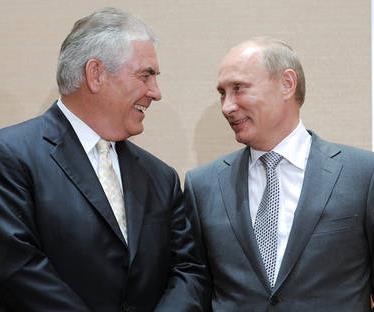 Rex Tillerson arrived to Moscow on Tuesday, having paralysed the traffic in Russia's capital, as police was blocking the roads to make a free way for his cortege, making blocked in traffic Muscovites send millions of curses in his address. The paralysis on the roads caused by Tillerson is very similar to the paralysis that has recently occurred in bilateral ties between the two powers, following the chemical attack in Idlib province reportedly committed by the loyal to Bashar al-Assad forces and then the strike of the SAA air base in Homs by the US «Tomahawk» missiles. The bilateral ties have reached the very low since the collapse of the Soviet Union and were about to pierce the bottom. The global uproar was at such extent that clash between the West and Moscow over Syria seemed inevitable. Russia has withdrawn from the the US-Russia air safety memorandum in SAR airspace and made it clear that in case of any further aggression threatening its safety will respond correspondingly to the challenge. Before the visit Rex Tillerson has sent Russia a kind of verbal ultimatum-like message to chose the side: with Iran and Assad or with the US. He was expected to bring to Moscow this ultimatums and tough rhetoric. But apparently he has lost them on his way to Moscow. The talks were finally constructive.
Rex Tillerson arrived to Moscow on Tuesday, having paralysed the traffic in Russia's capital, as police was blocking the roads to make a free way for his cortege, making blocked in traffic Muscovites send millions of curses in his address. The paralysis on the roads caused by Tillerson is very similar to the paralysis that has recently occurred in bilateral ties between the two powers, following the chemical attack in Idlib province reportedly committed by the loyal to Bashar al-Assad forces and then the strike of the SAA air base in Homs by the US «Tomahawk» missiles. The bilateral ties have reached the very low since the collapse of the Soviet Union and were about to pierce the bottom. The global uproar was at such extent that clash between the West and Moscow over Syria seemed inevitable. Russia has withdrawn from the the US-Russia air safety memorandum in SAR airspace and made it clear that in case of any further aggression threatening its safety will respond correspondingly to the challenge. Before the visit Rex Tillerson has sent Russia a kind of verbal ultimatum-like message to chose the side: with Iran and Assad or with the US. He was expected to bring to Moscow this ultimatums and tough rhetoric. But apparently he has lost them on his way to Moscow. The talks were finally constructive.
The global attention was engrossed to the visit of Tillerson. The allies were impressed by strong démarche of Trump all had been waiting from him, as it has put to an end the US Obama’s doctrine of relative non-involvement. So they expected that Rex Tillerson, will talk tough with Russia’s officials and make them sense how far the US can go and that it is in Russia’s interests to abandon the policy that brings it «to the wrong side of history». The «tomahawks» gave Tillerson a very strong position for talks. However, Russia has appeared to be not frightened, or at least demotivated, but concentrated and preparing for the tougher times and deeper confrontation, though keeping the doors for talks open. And the Secretary of State entered exactly those doors.
Tillerson held two much awaited meetings: with Foreign Minister Sergey Lavrov and with President Vladimir Putin, meeting with whom was under the question mark until the last moment. The bilan is not so negative as it was expected to be. However, negative moments can hardly be overcome in the nearest foreseeable future.
Ukrainian issues apparently will not be resolved for a long time, until the US change position, so sanctions and damaged relations are likely to remain. In case of Ukraine only issue of Luhansk and Donbass may be settled in the framework of Minsk agreements. But Crimea, return of which to Ukraine was added by Trump's administration as an obligatory condition for ties normalisation, will literally never be returned to Ukraine, both because of historical justice and choice of the Crimean people, who have been struggling for independence from Ukraine since the very collapse of the Soviet Union. The history never lies.
Tillerson and Putin have failed to find the common ground in evaluations of the deadly chemical attack in Idlib province,situation in Syria in general and Russia's support of Assad. Support, which Russia continually rejects, explaining its role in Syria exclusively as of backing of the SAA forces in their fight with terrorists.
Russia keeps on demanding the investigation of the chemical attack while for the US and its allies it is an absolutely clear affair. Russia has once again blocked resolution in the UN Security Council that condemns regime of Assad for committing the atroce attack, calling for independent investigation. Previously Vladimir Putin has declared that Russia cannot take measures against regime of Bashar al-Assad until there are results of independent international investigations proving the guilt of the regime. Russia disapproves of the US strike on Syria, considering it a dangerous move to further destabilisation of the region and the world.
Tillerson's acknowledgement of the fact that the trust between the two countries is on low level and that "the world's two foremost nuclear powers cannot have this kind of relationships" is a promising sign, giving more or less positive perspective for the ties normalisation, or at least stabilisation. Another promising thing for the world's stability, is establishment of a bilateral working group, that is to "examine" the so-called "irritants" in relations between Moscow and Washington. Moreover, Russia is ready to come back to the bilateral air safety memorandum in Syria, thus somehow the sides have retreated to the point before the "tomahawks" attack.
Russia and the US apparently have very similar interests in many areas of the global agenda, as fight on terrorism, however in case of some of them they have totally different approaches to how to achieve the desired result. Even in case of Syria, both sides are eager to put an end to the brutal conflict, to see united and stable Syria, but they see the conflict settlement in different ways, if not to say opposite ones. Assad's family reign coming to an end is a clear fact for the US side and its allies, while Russia's side sees other scenarios. And to respond to Tillerson's appeal to sever ties with Assad and to work with the United States on different initiatives in the Middle East in a positive way, would mean for Russia a grave failure, geopolitical defeat of its six years conflict involvement and its policy. Russians either win or die but never give up – another important trait of Russian mentality coming from the depths of history. However Mr. Tillerson does not like historical excursus, though in case of Russia it is very useful to look deep into history books. Even being exposed by regime of Assad for many times during the six years of the bloody years, Russia will continue its general line, taken from the very beginning, as it is a matter of honor. Russia is sure that overthrow of Assad would bring to far more bloody and dangerous turbulences than his temporary remaining into power. And on this issue Washington and Moscow would hardly find a common ground unless the Syrians finally agree upon the launch of political transition and take the fate of their own country in their own hands.
Trump apparently was happy with the way how the visit of the US Secretary of State has passed. After having brusquely changed his views upon NATO to diametrically opposite ones, he claimed during his press-conference with Stoltenberg that "it would be a fantastic thing" if the US, Nato and Russia got along better. However at the same time he assumed that "it may be just the opposite".
So it is white, but can be black – it seems that it is characteristic feature of the current administration which have no clear understanding of not only what is exactly going on, but even lack understanding of what it actually wants. There is no strategy, and tactics is predetermined by momentary gusts, influenced by whoever. And it has such a scale, that the allies camp should be grateful for the US strike of Syria to a mother of three, Ivanka Trump, who was shocked by the photos of dead children.
In such circumstances it is practically impossible to predict how situation will develop both on bilateral and international tracks, as long as administration is absolutely unpredictable itself. Thus Russia following the Secretary of State visit will host trilateral meeting of the ministers of foreign affairs of Iran, Syria and of its own, apparently forging their alliance stronger. Nothing makes Russia more stubborn and firm on its positions than abruptness of the US administration.











